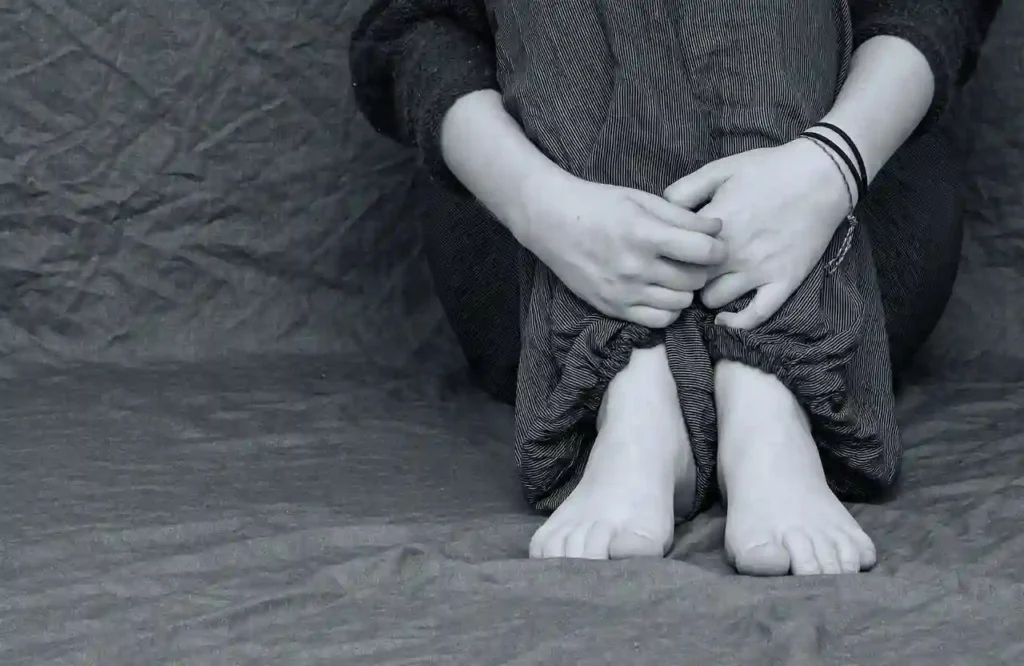Introduction

Depression is a complicated psychological problem, which influences individuals in varying ways. Although there are those who fully recover, there are those who live with symptoms over a long term. Realistic expectations cannot be built without understanding what is meant by the term cure, defining the difference between permanent recovery and constant management, and knowing what treatment options are available so that the right method of healing could be chosen. Now we will see Can Depression Be Cured?
Table of Contents
Understanding What “Cure” Means in Depression
Cure in depression does not imply that symptoms of depression may never come back but it may imply that previously depressed individuals still manages to feel and act normally without a continued cycle of the depressive state. Nonetheless, the risk of a relapse remains possible, and it might be connected with individual health condition, life situations, and stress levels. This knowledge can be used to manage expectations better and make people concentrate not only in alleviating symptoms but also in adopting healthy lifestyles and preventing the disorder by adopting the right measures.
The Difference Between Cure and Long-Term Management
Cure implies permanent recovery, but long-term management is involved in ensuring the symptoms of depression are kept under control so that they do not have significant effects on the daily life. Although one may not be cured of his or her depression, many individuals live long stretches of stability by combining therapy, medication, and lifestyle modifications. The relocation emphasis of complete eradication to sustainability management of the condition gives individuals the strength to manage the adversities of life and not become overwhelmed by depressive symptoms.
Medical Treatments That Can Reduce or Eliminate Symptoms
Depression symptoms might be alleviated significantly with help of antidepressants, which are SSRIs and SNRIs among the others. Sometimes they successfully help to overcome the problem. More drastic or otherwise treatment-resistant cases can also be treated via the implementations of electroconvulsive therapy (ECT) or transcranial magnetic stimulation (TMS). Success depends on the individuals and that is the reason as to why treatment plans are mostly unique and are frequently modified by medical practitioners. The aim is to obtain maximum symptom relief with minimum side-effects and contribution to the well-being.
The Role of Therapy in Achieving Recovery

Psychotherapy is crucial in treating the cause of depression and providing skills that the victims can use in the long term in healing their condition. Cognitive Behavioral Therapy (CBT) will be very useful when it comes to combating negative thought patterns, whereas other forms of treatment such as interpersonal therapy and psychodynamic therapy focus on relationship problems and relating to trauma. Treatment does not only reduce the presence of existing symptoms but also strengthens resilience, awareness, and prophylactic efforts to improve the chances of avoiding depressive states in the future.
How Lifestyle Changes Support Long-Term Mental Health
Such lifestyle changes as physical exercise, healthy diet, proper sleep, and good social relationships may contribute greatly to recovery and facing relapse. Workout improves mood with the release of endorphins, proper diet promotes brain activity and good sleep re-establishes emotions. The process of social support diminishes isolation, and mindfulness characteristics, such as meditation and others, reduce levels of stress. These types of combined habits create a good base that supports medical and therapeutic measures by ensuring the long-term stability of mental conditions.
Can Depression Go Away Without Treatment?
Even in mild depression, condition may resolve over time without treatment although this can be dependent on whether the condition is precipitated by some situations which may be of short term nature. Untreated depression in most cases will remain persistent or aggravated exposing one to severe cases of the same. Unless treated, people can face continuous emotional discomfort, poor functioning in everyday life, and possible physical ill effects. Undergoing professional assistance at an early stage, it is significantly more likely to recover the problem and eliminate excessive development of this condition or its becoming chronic.
The Risk of Relapse After Recovery

Depression may reoccur even despite the fact that the condition was previously recovered especially in cases where the causes are not dealt with thus completely, as well, in cases where lifestyles and treatment regimes were abandoned. It has been found that individuals who experience more than one episode or are experiencing continual stress experience an increased risk of relapse. Post surgery prevention is possible through the use of future therapy, maintenance medicine, and healthy lifestyle choices and can go a long way in preventing recurrence. Constant check-ins and knowing the early warning signs give people the opportunity to intervene before the symptoms develop to the stage of a complete relapse.
Hope and Real-Life Stories of Overcoming Depression
Depression recovery stories are quite many, and it only proves that depression can be overcome with help and proper treatment. Such individual expeditions are usually a combination of therapy, medication, and lifestyle change. They instill hope, demystify and give hope to others to seek help. Although the experience of recovering is individual, knowing that other people can successfully get through depression reaffirms the message that depression is treatable and even curable, which leads to meaningful and productive life.
The Importance of Early Intervention for Better Outcomes
Depression can be successfully recovered with early diagnosis and treatment thus considerably increasing the possibility of recovery. Early treatment will avert severe entrenchment of the symptoms and relapse and enhance the quality of life. The interventions in early care are usually less resource- and time-intensive than the treatment of long-term depression. Identification and management of warning signs and prompt treatment using professional services provide a patient with the highest chance of combating the condition successfully before it leaves permanent effects.
How Support Systems Aid in Recovery
Adequate support systems ensure a person heals, including family, friends, peer groups. Supporting individuals, compassion, and cognitive skills will ease the feeling of isolation and will keep people loyal to treatment. Support networks will also be able to detect possible threats of relapse and prompt action. Not only does regular social support create the safety net necessary to make long-term recovery a stable reality but it also increases mental health outcomes in the long run through a listening ear, assistance with everyday chores, and shared activities.
The Role of Mindfulness and Stress Reduction in Healing
Stress is also a major condition that leads to depression as well as exacerbating it, and mindfulness practices that are used to mitigate stress these include meditation, deep breathing exercises, and yoga among others. These methods foster being in the present moment, discourage pessimistic thinking and foster emotional stability. Within time, mindfulness has the ability of rewiring the brain against reacting to stress and hence reducing chances of relapse. Complemented with other treatment methods, the stress-reduction techniques have a potent power of recovery, creating a feeling of tranquility, independence, and stronger control over emotional states.
Future Research and Advances in Depression Treatment
Scientists are making new discoveries that reveal new methods of depression treatment such as ketamine therapy, novel brain stimulation methods, and personal medicine depending on genetic makeup. Other researchers have been studying the connection between the gut and the brain, as well as how inflammation links to depression. These developments are driven by the desire to increase efficiencies in terms of fast and effective access to treatment. As progress moves on, there are positive prospects of people living with depression getting faster recovery rates, decreased reoccurrence rates and targeted personified solution in the future.
1. Can Depression Go Away Completely?
Some individuals may find that they get rid of depression especially after they have taken treatment and when this happens with good support and lifestyle changes. Nevertheless, some can still have repeated exacerbations despite marked recovery.
In other individuals depressions may be treated completely after which they are back to normal lives without symptoms. Supportive relationships, medication, effective therapy and early intervention among others are very positively affecting the likelihood of a long lasting recovery. Depression however, tends to recur in some instances especially when underlying causes are not addressed. The long-term effects of obtaining remission and thus, establishing long-term well-being requires mental health and self-care monitoring.
2. Can Depression Be Cured Permanently?
Although long-lasting remissions may be achieved, depression is not followed by a sure relief. It may recur with tension or significant life stresses and is important to continue to treat and manage.
Depression can also be seen as a manageable condition as opposed to one that can be completely cured in all people. Some continue to never have the symptoms again but in some other cases, it may resurface out of the blue. That is why mental health experts deal with long-term management strategies to reduce the likelihood of relapse, such as therapy, healthy routine, and stress. Staying mindful about the mental condition and adopting preventative measures is critical towards long-term recovery in a lifetime.
3. Is Depression Treatable or Curable?
Depression can be largely cured by using therapy, medication, and change in life style. Whereas a complete cure is not assured to everyone, many individuals manage to live complete and satisfying lives with no symptoms by offering proper support.
As an example, modern medicine can help treat depression through approaches such as psychotherapy or the use of antidepressant drugs and mindfulness and exercise as a holistic medicine. Most of the people recover fully and feel unimpaired by symptoms. Nonetheless, the term cure is not used by mental health experts always since there are situations that the depression can reoccur. It is important to note that although the treatment gives focus to relieving current symptoms, its long-term aim is resilience and emotional stability to ensure a high quality of life on an ongoing basis.
4. Can Lifestyle Changes Cure Depression?
Life style changes by themselves never really end up curing depression but when used together with professional care which may be in terms of therapy, medications among others, they lessen the symptoms and enhance the success of the treatment.
As positive brain chemistry and mood regulation are directly related to healthy lifestyle behaviors (regular exercise, healthy nutrition, restful sleep, and positive social networks) then we have a clear linkage and explanation of why healthy lifestyle behaviors directly translate to beneficial changes in our brain chemistry and mood control. Though these changes can provide support to mild cases of depression, moderate and severe types usually need professional treatment to be overcome and solved completely. Combining the habits with therapy or medication makes treatment more effective and increases resilience, helping to prevent the relapse, so lifestyle improvement becomes an essential component of long-term depression management.
5. Will Depression Come Back After Recovery?
Recovery can be followed by new cases of depression, in case the triggers mentioned, such as stresses, trauma, or health issues occur. Nevertheless, the risk of relapse may be minimized by the continuous self-care, cognition, and healthy coping techniques.
Once a person comes out of depression, there is a possibility of the individual entering depression once again after months or years. This can be more probable when underlying pathologies such as the trauma which has not been healed, consistent stress and even health issues lie unattended. Regular check-ups with the therapist, stress elimination, healthy lifestyles, and good social support can minimize the risk of the disease significantly. Mental health is maintained by constant care, and it is less likely to result in the resurgence of depression with time.
6. Can Depression Resolve Without Treatment?
Mild depression is likely to resolve on its own, particularly where there are favourable lifestyle changeovers. Nevertheless, professional intervention is normally necessary to overcome moderate to severe depression successfully and on a permanent basis.
Mild depression in certain instances can resolve itself and simply be fixed up when one makes improvements in their lives i.e. better sleep, exercise, relationship improvements or decreasing stress. However, in cases of moderate to severe ones, the symptoms tend to extend or increase without medication and therapy. Depression that goes untreated can result into severe consequences such as deterioration of bodily conditions and risking committing suicide. The professional help would help attain proper diagnosis, efficient treatment, and greater success and capability of experiencing and sustaining the long-term recovery.
7. What Are My Chances of Full Recovery from Depression?
With early treatment, robust support and healthy lifestyle, a significant number of depressed persons get well. But the time of recovery and results differ according to the circumstances and factors involved.
The chances of its complete recovery depend on a number of factors including the intensity of the depression, the timeliness of treatment commencement, and the availability of an overall support mechanism. Through appropriate treatment, and drug therapy where it becomes unavoidable, and lifestyle changes, a number of individuals are able to resume productive and normal lives. Although certain people might get temporary setbacks, overall, the prognosis of actively involved and at least long-term-oriented patients is positive.
Conclusion
Depression is not easy but it is highly curable, by taking the right step. Although it is not realised in all individuals permanently, many of them have been seen to achieve a permanent recovery by combining therapy, drugs, lifestyle modifications, and good support systems. Early treatment is very important and it has a positive outcome, whereas constant self-care prevents relapse. And with hope, professional help, and persistence, depression can be overcome and replaced with a life filled with more joy, one that is balanced.